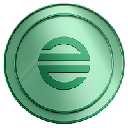-
 Bitcoin
Bitcoin $82,817.8607
0.37% -
 Ethereum
Ethereum $1,786.3450
-0.21% -
 Tether USDt
Tether USDt $0.9995
-0.03% -
 XRP
XRP $2.0581
2.05% -
 BNB
BNB $588.2756
-0.68% -
 USDC
USDC $0.9998
0.00% -
 Solana
Solana $115.3483
0.38% -
 Dogecoin
Dogecoin $0.1636
2.68% -
 TRON
TRON $0.2386
2.84% -
 Cardano
Cardano $0.6358
-0.31% -
 UNUS SED LEO
UNUS SED LEO $9.3782
-0.39% -
 Toncoin
Toncoin $3.3861
-6.95% -
 Chainlink
Chainlink $12.5471
-1.04% -
 Stellar
Stellar $0.2562
0.24% -
 Avalanche
Avalanche $17.9826
0.03% -
 Shiba Inu
Shiba Inu $0.0...01210
0.63% -
 Sui
Sui $2.1798
-1.97% -
 Hedera
Hedera $0.1599
1.32% -
 Polkadot
Polkadot $4.0300
3.14% -
 Litecoin
Litecoin $82.4348
0.50% -
 MANTRA
MANTRA $6.2928
-0.26% -
 Bitcoin Cash
Bitcoin Cash $298.4903
-1.02% -
 Bitget Token
Bitget Token $4.4895
-0.77% -
 Dai
Dai $1.0000
0.00% -
 Ethena USDe
Ethena USDe $0.9995
-0.01% -
 Monero
Monero $215.3108
0.00% -
 Hyperliquid
Hyperliquid $11.2063
-1.26% -
 Uniswap
Uniswap $5.7675
-1.15% -
 Pi
Pi $0.5200
-14.33% -
 NEAR Protocol
NEAR Protocol $2.4551
3.63%
What is DAO? How does its governance mechanism work?
DAOs operate autonomously via smart contracts on blockchains, with members voting on proposals using native tokens, ensuring transparent and decentralized governance.
Mar 30, 2025 at 10:36 pm
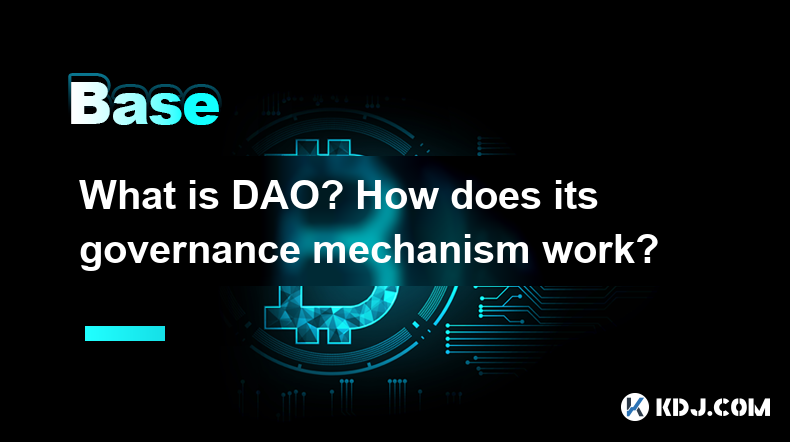
Understanding Decentralized Autonomous Organizations (DAOs)
A Decentralized Autonomous Organization (DAO) is a community-led entity without centralized leadership or management. It operates autonomously based on pre-programmed rules encoded in smart contracts deployed on a blockchain. These rules dictate how the DAO functions, making its operations transparent and immutable. Members participate in decision-making through proposals and voting, often using the DAO's native token. The lack of central authority differentiates DAOs from traditional organizations.
The Governance Mechanism of a DAO: A Deep Dive
The governance mechanism of a DAO is the core of its operation. It determines how decisions are made and executed within the organization. This mechanism is typically defined in the DAO's smart contracts and relies heavily on the participation of its members. The specific implementation can vary significantly between DAOs, offering diverse approaches to decision-making.
Key Components of DAO Governance
Token Holders: Members usually hold a native token granting them voting rights. The number of tokens held often determines the voting power.
Proposals: Members can submit proposals for various actions, such as funding projects, changing parameters, or allocating resources.
Voting: Token holders vote on proposals, with the outcome determined by a pre-defined voting mechanism (e.g., simple majority, weighted voting).
Smart Contracts: These self-executing contracts automate the implementation of approved proposals, ensuring transparency and accountability.
Treasury: DAOs typically manage a treasury of funds, often in cryptocurrency, used to fund projects and operations.
Different Voting Mechanisms in DAOs
DAOs employ various voting mechanisms to suit their specific needs. Some common methods include:
Simple Majority Voting: A proposal passes if more than 50% of the votes support it. This is a straightforward approach but can be susceptible to manipulation if a large portion of tokens is concentrated in a few hands.
Weighted Voting: Voting power is proportional to the number of tokens held. This approach gives more influence to larger token holders.
Quadratic Voting: This mechanism gives more weight to smaller token holders, mitigating the influence of whales. It aims for a more representative outcome.
Liquid Democracy: Members can delegate their voting rights to other trusted members, allowing for more efficient participation.
The Role of Smart Contracts in DAO Governance
Smart contracts are the backbone of DAO governance. They automate the execution of decisions, ensuring that the rules are followed without human intervention. This eliminates the possibility of fraud or manipulation by central authorities. The code of these smart contracts is publicly auditable, promoting transparency and accountability.
Challenges and Considerations in DAO Governance
While DAOs offer numerous advantages, their governance mechanisms also present challenges:
Attack Vectors: DAOs are vulnerable to attacks, particularly those targeting the governance mechanism itself. Exploits in smart contracts can lead to significant losses.
Participation: Ensuring sufficient participation from members is crucial for effective governance. Low participation can lead to decisions that do not reflect the community's will.
Scalability: As DAOs grow larger, managing governance becomes increasingly complex, requiring sophisticated mechanisms to handle a large number of proposals and voters.
Sybil Attacks: Multiple accounts controlled by a single entity can manipulate voting outcomes, undermining the fairness of the system.
Examples of Different DAO Governance Models
Different DAOs employ different governance models, reflecting the diverse needs and priorities of their communities. Some DAOs might use a more centralized approach with a council of members making key decisions, while others might fully rely on on-chain voting. The choice of governance model is a critical design decision that significantly impacts the DAO's effectiveness and resilience.
The Future of DAO Governance
The field of DAO governance is constantly evolving. Researchers and developers are exploring innovative mechanisms to improve efficiency, security, and inclusivity. New voting systems, improved smart contract designs, and enhanced security protocols are continuously being developed to address the challenges faced by DAOs. The future of DAO governance likely involves a combination of different approaches, tailored to the specific needs of each organization.
Frequently Asked Questions
Q: What are the benefits of using a DAO structure?
A: DAOs offer transparency, automation, community ownership, and reduced reliance on centralized authorities. Decisions are made collectively and are immutable once recorded on the blockchain.
Q: How can I participate in a DAO?
A: Participation typically involves acquiring the DAO's native token. The specific process varies depending on the DAO, but often involves purchasing tokens on a cryptocurrency exchange or participating in a token sale.
Q: Are DAOs truly decentralized?
A: The degree of decentralization varies between DAOs. While many aim for complete decentralization, some might have elements of centralized control, particularly in the early stages of their development. The level of decentralization is often a key consideration when evaluating a DAO.
Q: What are the risks associated with DAOs?
A: Risks include smart contract vulnerabilities, governance attacks, low participation rates, and the potential for manipulation by large token holders. Thorough audits and robust governance mechanisms are essential to mitigate these risks.
Q: How are DAOs funded?
A: DAOs typically have a treasury funded through initial token sales, community contributions, or profits generated from their activities. The management of the treasury is a critical aspect of DAO governance.
Disclaimer:info@kdj.com
The information provided is not trading advice. kdj.com does not assume any responsibility for any investments made based on the information provided in this article. Cryptocurrencies are highly volatile and it is highly recommended that you invest with caution after thorough research!
If you believe that the content used on this website infringes your copyright, please contact us immediately (info@kdj.com) and we will delete it promptly.
- Dogecoin Price Soared Over 2% Today, Indicating a Renewed Market Interest in the Leading Meme Coin
- 2025-04-04 21:10:12
- Filecoin FIL $2.76 24h volatility: 2.9% Market cap: $1.79 B Vol. 24h: $489.77 M
- 2025-04-04 21:10:12
- The latest Dogecoin price prediction is raising eyebrows
- 2025-04-04 21:05:12
- With meme coins like Pepe and Shiba Inu back in the spotlight, traders are wondering which token could deliver the biggest gains this week
- 2025-04-04 21:05:12
- Market expert Ali Martinez estimates that the price of this dog-themed meme coin has the potential to surge by around 250% to touch the $0.5 level
- 2025-04-04 21:00:12
- Ethereum (ETH) price plunges further as investors limit their risk exposure
- 2025-04-04 21:00:12
Related knowledge
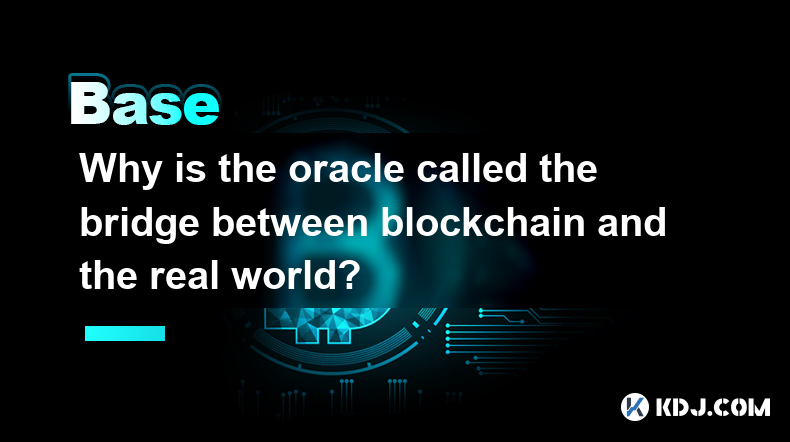
Why is the oracle called the bridge between blockchain and the real world?
Apr 04,2025 at 04:00am
The concept of an oracle in the cryptocurrency and blockchain world is crucial for understanding how these decentralized systems interact with external data. The oracle is often referred to as the bridge between blockchain and the real world because it serves as a vital intermediary that fetches, verifies, and transmits off-chain data to the on-chain en...
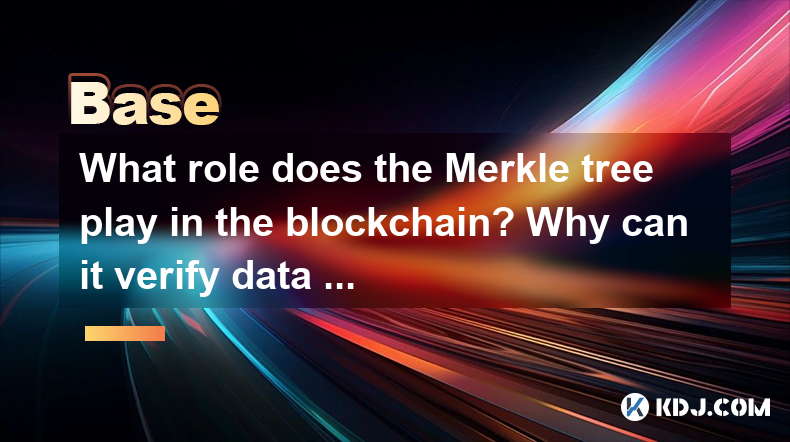
What role does the Merkle tree play in the blockchain? Why can it verify data integrity?
Apr 04,2025 at 01:29pm
The Merkle tree plays a crucial role in the blockchain, primarily due to its ability to efficiently and securely verify data integrity. This article will delve into the structure of a Merkle tree, its implementation in blockchain, and how it ensures the integrity of data. Understanding the Structure of a Merkle TreeA Merkle tree, also known as a hash tr...
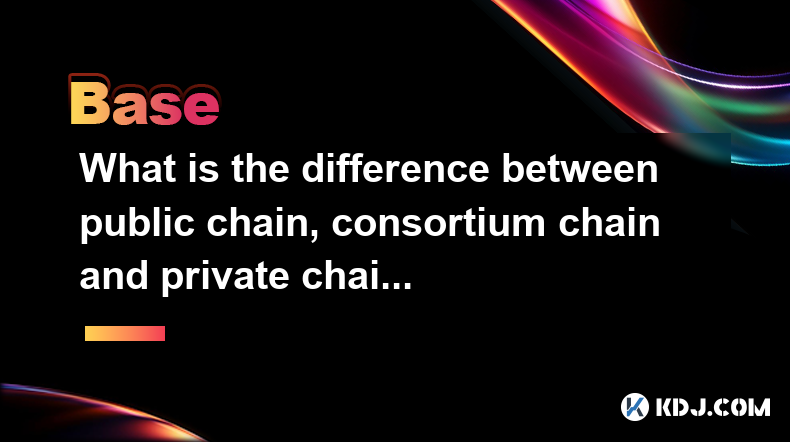
What is the difference between public chain, consortium chain and private chain? What scenarios are suitable for each?
Apr 04,2025 at 09:21pm
In the world of blockchain technology, understanding the differences between public chains, consortium chains, and private chains is crucial for selecting the right type of blockchain for specific applications. Each type of blockchain has its own unique characteristics and use cases, which we will explore in detail. Understanding Public ChainsPublic cha...
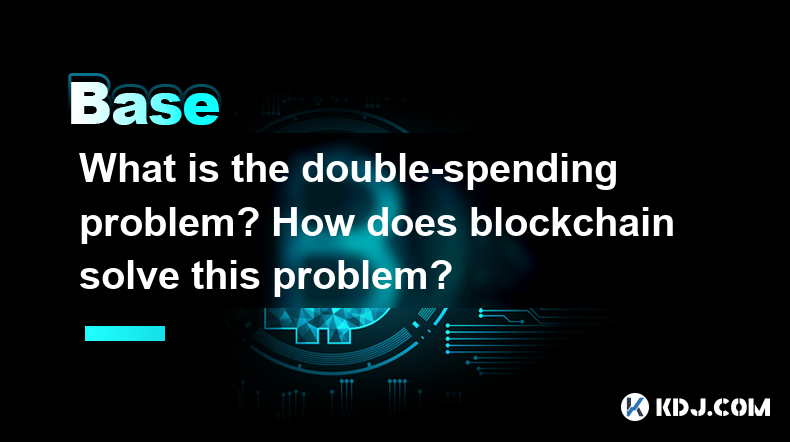
What is the double-spending problem? How does blockchain solve this problem?
Apr 04,2025 at 09:07am
The double-spending problem is a significant challenge in the realm of digital currencies. Double-spending refers to the potential for a digital currency to be spent more than once. This issue arises because digital files, unlike physical cash, can be easily duplicated. If not addressed, double-spending could undermine the integrity and trust in any dig...
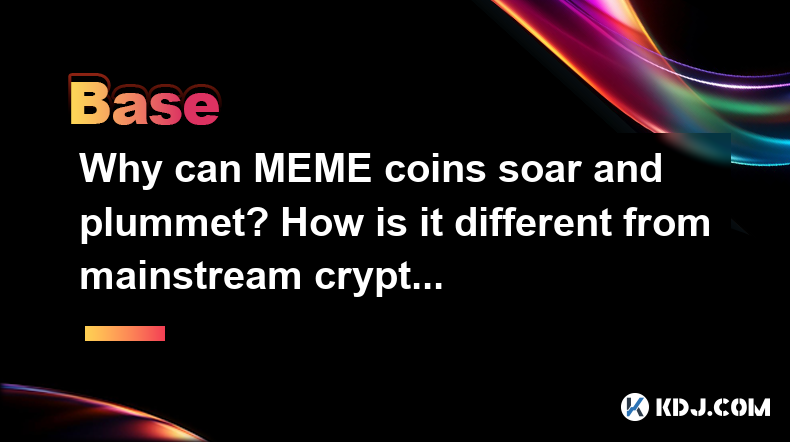
Why can MEME coins soar and plummet? How is it different from mainstream cryptocurrencies?
Apr 04,2025 at 03:07pm
The world of cryptocurrencies is vast and diverse, with a wide range of digital assets that cater to different needs and interests. Among these, MEME coins have carved out a unique niche, often experiencing dramatic price fluctuations that can both soar and plummet in a short period. This phenomenon, while intriguing, differs significantly from the beha...
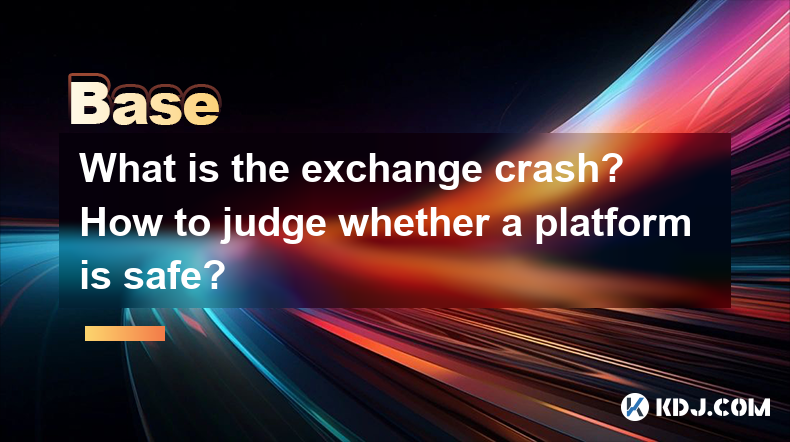
What is the exchange crash? How to judge whether a platform is safe?
Apr 04,2025 at 05:07pm
An exchange crash refers to a sudden and severe disruption in the operations of a cryptocurrency exchange platform, leading to significant financial losses for users and often resulting in the platform's inability to continue functioning. Such crashes can stem from various causes, including cybersecurity breaches, technical failures, or insolvency. Unde...

Why is the oracle called the bridge between blockchain and the real world?
Apr 04,2025 at 04:00am
The concept of an oracle in the cryptocurrency and blockchain world is crucial for understanding how these decentralized systems interact with external data. The oracle is often referred to as the bridge between blockchain and the real world because it serves as a vital intermediary that fetches, verifies, and transmits off-chain data to the on-chain en...

What role does the Merkle tree play in the blockchain? Why can it verify data integrity?
Apr 04,2025 at 01:29pm
The Merkle tree plays a crucial role in the blockchain, primarily due to its ability to efficiently and securely verify data integrity. This article will delve into the structure of a Merkle tree, its implementation in blockchain, and how it ensures the integrity of data. Understanding the Structure of a Merkle TreeA Merkle tree, also known as a hash tr...

What is the difference between public chain, consortium chain and private chain? What scenarios are suitable for each?
Apr 04,2025 at 09:21pm
In the world of blockchain technology, understanding the differences between public chains, consortium chains, and private chains is crucial for selecting the right type of blockchain for specific applications. Each type of blockchain has its own unique characteristics and use cases, which we will explore in detail. Understanding Public ChainsPublic cha...

What is the double-spending problem? How does blockchain solve this problem?
Apr 04,2025 at 09:07am
The double-spending problem is a significant challenge in the realm of digital currencies. Double-spending refers to the potential for a digital currency to be spent more than once. This issue arises because digital files, unlike physical cash, can be easily duplicated. If not addressed, double-spending could undermine the integrity and trust in any dig...

Why can MEME coins soar and plummet? How is it different from mainstream cryptocurrencies?
Apr 04,2025 at 03:07pm
The world of cryptocurrencies is vast and diverse, with a wide range of digital assets that cater to different needs and interests. Among these, MEME coins have carved out a unique niche, often experiencing dramatic price fluctuations that can both soar and plummet in a short period. This phenomenon, while intriguing, differs significantly from the beha...

What is the exchange crash? How to judge whether a platform is safe?
Apr 04,2025 at 05:07pm
An exchange crash refers to a sudden and severe disruption in the operations of a cryptocurrency exchange platform, leading to significant financial losses for users and often resulting in the platform's inability to continue functioning. Such crashes can stem from various causes, including cybersecurity breaches, technical failures, or insolvency. Unde...
See all articles


















































































